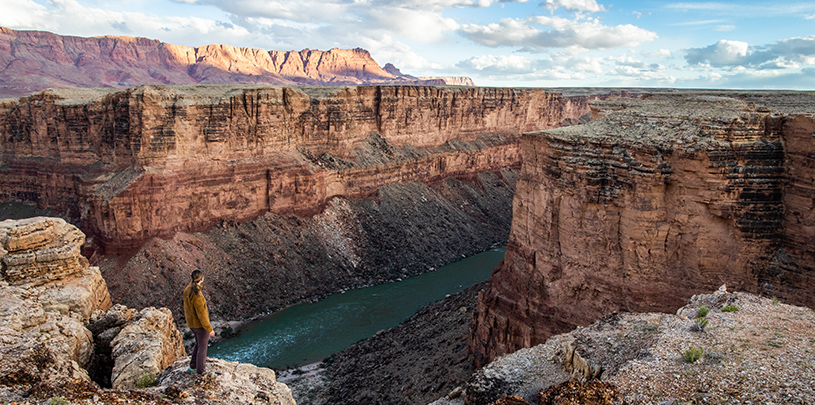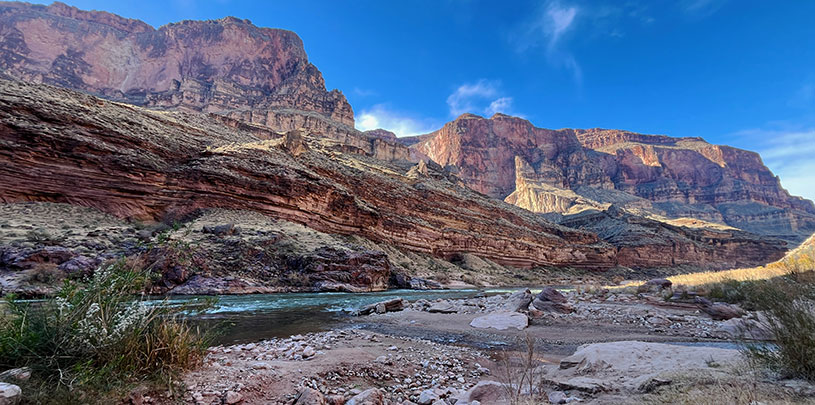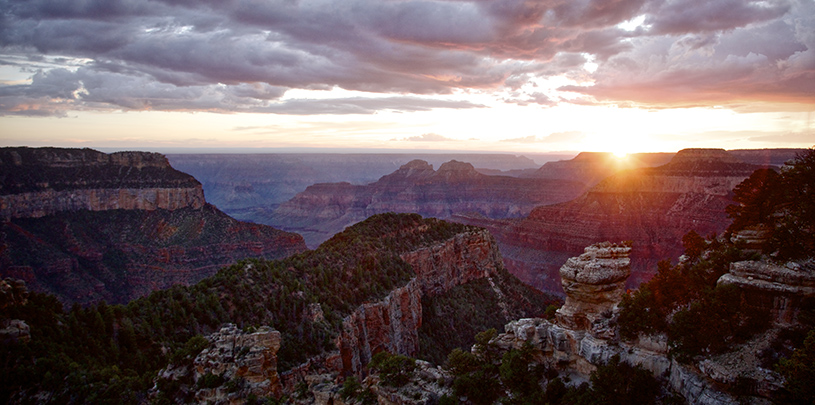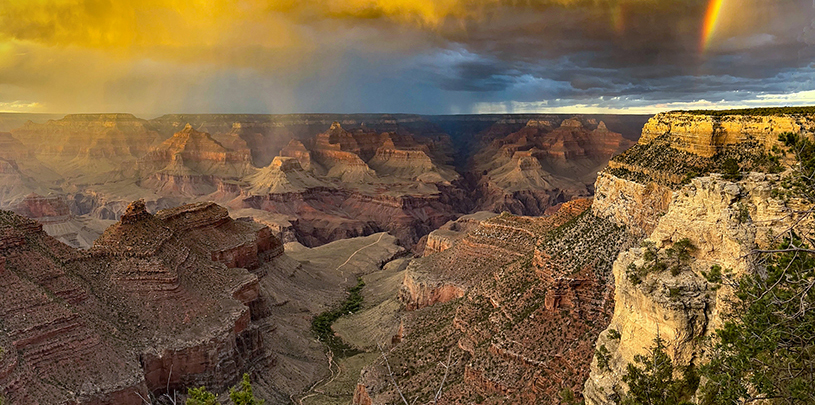
Update: President Biden designated Baaj Nwaavjo I’tah Kukveni Grand Canyon National Monument on August 8, 2023. Learn more ›
Opinion polling shows that voters in the Grand Canyon state strongly support the creation of a new national monument to protect culturally, ecologically, and economically important lands and waters near the Grand Canyon. Polling also shows that support for the Antiquities Act, which gives the president the authority to designate national monuments, remains overwhelmingly strong nearly 117 years after it was first passed.
Voters support a monument by a five-to-one margin
Support for a national monument to protect the Grand Canyon region is overwhelming, polling over the past year has shown, with Arizona voters supporting the idea by a five-to-one margin.
When pollsters asked voters their opinions about designating existing public lands immediately outside the Grand Canyon as a national monument to protect clean water supplies and Native American sites, while prohibiting mining, 75 percent said they supported the idea, compared to only 15 percent opposed.
Bipartisan support for a national monument to protect the Grand Canyon region
Importantly, support for a monument is bipartisan. Among Democrats, the support is almost unanimous, with 91 percent of voters supporting and only six percent opposed. Support is also strong among Republican voters, who favor a monument by a more than two-to-one margin. Hispanic voters also overwhelmingly support the monument, by a margin of more than eight to one.
This polling is a good sign for Native American tribes, who in April asked President Biden to honor their ancestral homelands around the Grand Canyon by protecting about 1 million acres of existing federal public lands outside Grand Canyon National Park as Baaj Nwaavjo I’tah Kukveni Grand Canyon National Monument.
The tribes of the Grand Canyon Tribal Coalition have lived in and stewarded these lands for thousands of years and are advocating for the protection of sacred sites and important cultural resources within the proposed monument boundary. A national monument would maintain access and existing uses of these public lands, including hunting, fishing, camping, grazing, hiking, and plant and firewood gathering while protecting the region’s clean air, land, and water.
Strong support for the Antiquities Act
Several polls conducted over the last year show continuing and robust public support for protecting the Grand Canyon region for future generations, and reaffirm overwhelming public support for the U.S. president’s power to create new national monuments under the Antiquities Act, first signed into law on June 8, 1906. Since its passage, the act has been used by 18 presidents — nine Republicans and nine Democrats — to create or expand national monuments.
Popular support for presidents continuing to have the ability to protect existing public lands as national monuments remains extraordinarily high. In Arizona, 85 percent of voters support the idea, including a whopping 95 percent of Democrats and 76 percent of Republicans.
Support for presidents creating national monuments is strong across party lines
Even in a politically polarized time when Arizona voters are often strictly divided along party lines, there is extraordinary unity among Arizonans when it comes to support for presidents continuing to use their power under the Antiquities Act to protect existing public lands as national monuments.
And this support transcends political partisanship and generations. Another recent poll, conducted separately by Colorado College, confirmed the trend, finding that 86 percent of Arizona voters support presidents using their power to protect lands as national monuments, including 96 percent of Democrats and 76 percent of voters identifying as conservative Republicans.
Listening to tribes and protecting the Colorado River
The Colorado College poll also showed that 85 percent of Arizona voters support greater input from Native American tribes about areas with sacred or culturally important sites.
And, with groundwater, creeks, and storm runoff flowing into the Colorado River from these lands, protecting the area as a national monument would help protect the river, which 89 percent of Arizona voters consider critical to the state’s economy.
All in all, past polling indicates that the proposal put forth by Grand Canyon area tribes asking President Biden to use the Antiquities Act to designate their homelands outside the national park as Baaj Nwaavjo I’tah Kukveni Grand Canyon National Monument has all the components to be broadly popular among voters in the Grand Canyon state.





